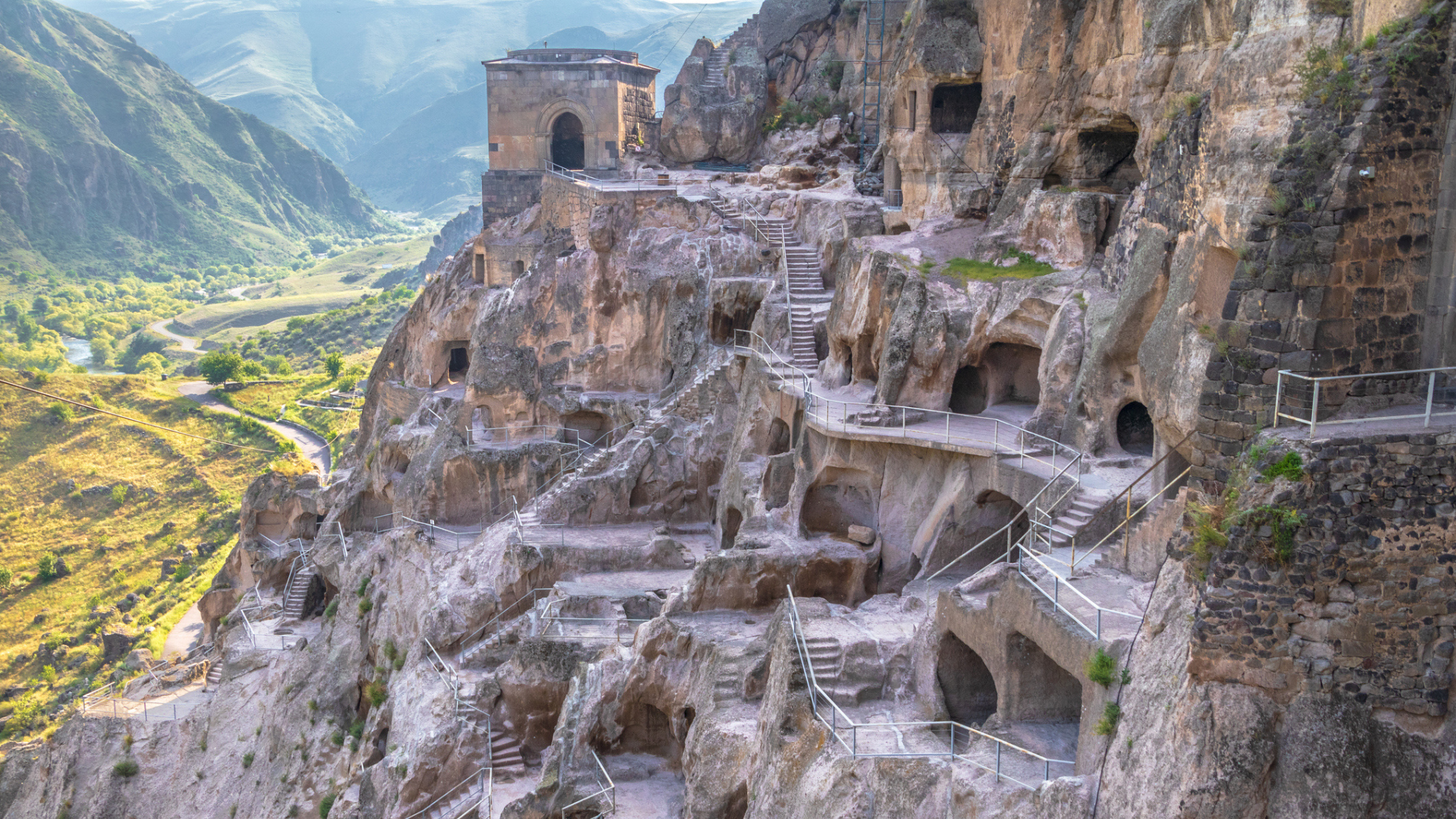Exploring Georgia's southern highlands
Visit Javakheti, Georgia's 'lake district', and meet the last-remaining 'spirit wrestlers' in the region

A free daily email with the biggest news stories of the day – and the best features from TheWeek.com
You are now subscribed
Your newsletter sign-up was successful
In the past few years, Georgia has seen a large rise in international tourists, says Antonia Bolingbroke-Kent in the Financial Times. Despite fears about its ruling party's "growing authoritarianism and support for Russia", numbers rose 37% between 2022 and 2024, and new flights (including direct services from London) look likely to bring even more this year. Visitors come for a "culture-rich city break" in Tbilisi, or to tour the vineyards of Kakheti in the east, or the villages of Svaneti in the north. But few head south to Javakheti, a region bordering Turkey and Armenia known as Georgia's "lake district".
Javakheti's vast, "rolling" grasslands are punctuated by "steep-walled gorges" and volcanic peaks rising to over 3,000 metres. Seljuks, Mongols, Persians and Ottomans all fought over these wild borderlands, which once lay on the Silk Road, and you'll spot "cyclopean" forts on "craggy" summits. I hiked up to one, the 9th century castle of Tmogvi, on a "perfect" autumn day. En route, I picked wild apples from trees sheltered in a rocky valley, and watched "daffodil-yellow" butterflies flitting among "spires of mullein and purple sage". The region is home to lynx, wolf and brown bear, and its huge lakes and wetlands are a crucial habitat for migratory birds, including spectacular species such as great white pelicans.
There's only one upmarket hotel in Javakheti – the Vardzia Resort – so I stayed in "simple" village guest-houses. Many are owned by Armenians, who comprise the majority of the region's "patchwork of ethnicities". I also visited Georgia's last-remaining Doukhobors, or "spirit wrestlers", members of a pacifist Christian sect with roots in 18th century Russia. In their wooden prayer house in Gorelovka, I listened as three women sang together, turning to bow to one another in recognition of the divine spirit that resides in us all.
The Week
Escape your echo chamber. Get the facts behind the news, plus analysis from multiple perspectives.

Sign up for The Week's Free Newsletters
From our morning news briefing to a weekly Good News Newsletter, get the best of The Week delivered directly to your inbox.
From our morning news briefing to a weekly Good News Newsletter, get the best of The Week delivered directly to your inbox.
A free daily email with the biggest news stories of the day – and the best features from TheWeek.com
-
 The ‘ravenous’ demand for Cornish minerals
The ‘ravenous’ demand for Cornish mineralsUnder the Radar Growing need for critical minerals to power tech has intensified ‘appetite’ for lithium, which could be a ‘huge boon’ for local economy
-
 Why are election experts taking Trump’s midterm threats seriously?
Why are election experts taking Trump’s midterm threats seriously?IN THE SPOTLIGHT As the president muses about polling place deployments and a centralized electoral system aimed at one-party control, lawmakers are taking this administration at its word
-
 ‘Restaurateurs have become millionaires’
‘Restaurateurs have become millionaires’Instant Opinion Opinion, comment and editorials of the day
-
 Kia EV4: a ‘terrifically comfy’ electric car
Kia EV4: a ‘terrifically comfy’ electric carThe Week Recommends The family-friendly vehicle has ‘plush seats’ and generous space
-
 Bonfire of the Murdochs: an ‘utterly gripping’ book
Bonfire of the Murdochs: an ‘utterly gripping’ bookThe Week Recommends Gabriel Sherman examines Rupert Murdoch’s ‘war of succession’ over his media empire
-
 Gwen John: Strange Beauties – a ‘superb’ retrospective
Gwen John: Strange Beauties – a ‘superb’ retrospectiveThe Week Recommends ‘Daunting’ show at the National Museum Cardiff plunges viewers into the Welsh artist’s ‘spiritual, austere existence’
-
 Bad Bunny’s Super Bowl: A win for unity
Bad Bunny’s Super Bowl: A win for unityFeature The global superstar's halftime show was a celebration for everyone to enjoy
-
 Book reviews: ‘Bonfire of the Murdochs’ and ‘The Typewriter and the Guillotine’
Book reviews: ‘Bonfire of the Murdochs’ and ‘The Typewriter and the Guillotine’Feature New insights into the Murdoch family’s turmoil and a renowned journalist’s time in pre-World War II Paris
-
 6 exquisite homes with vast acreage
6 exquisite homes with vast acreageFeature Featuring an off-the-grid contemporary home in New Mexico and lakefront farmhouse in Massachusetts
-
 Film reviews: ‘Wuthering Heights,’ ‘Good Luck, Have Fun, Don’t Die,’ and ‘Sirat’
Film reviews: ‘Wuthering Heights,’ ‘Good Luck, Have Fun, Don’t Die,’ and ‘Sirat’Feature An inconvenient love torments a would-be couple, a gonzo time traveler seeks to save humanity from AI, and a father’s desperate search goes deeply sideways
-
 A thrilling foodie city in northern Japan
A thrilling foodie city in northern JapanThe Week Recommends The food scene here is ‘unspoilt’ and ‘fun’